
独立媒体,非营利性质,我们关注环境、教育、性/别、精神健康等公共议题,提供负责的纪实性内容。欢迎在这些平台关注我们:https://linktr.ee/ngocn Email: ngocn2020edit@protonmail.com
Disillusionment in France (1) | The Long Road to Sex
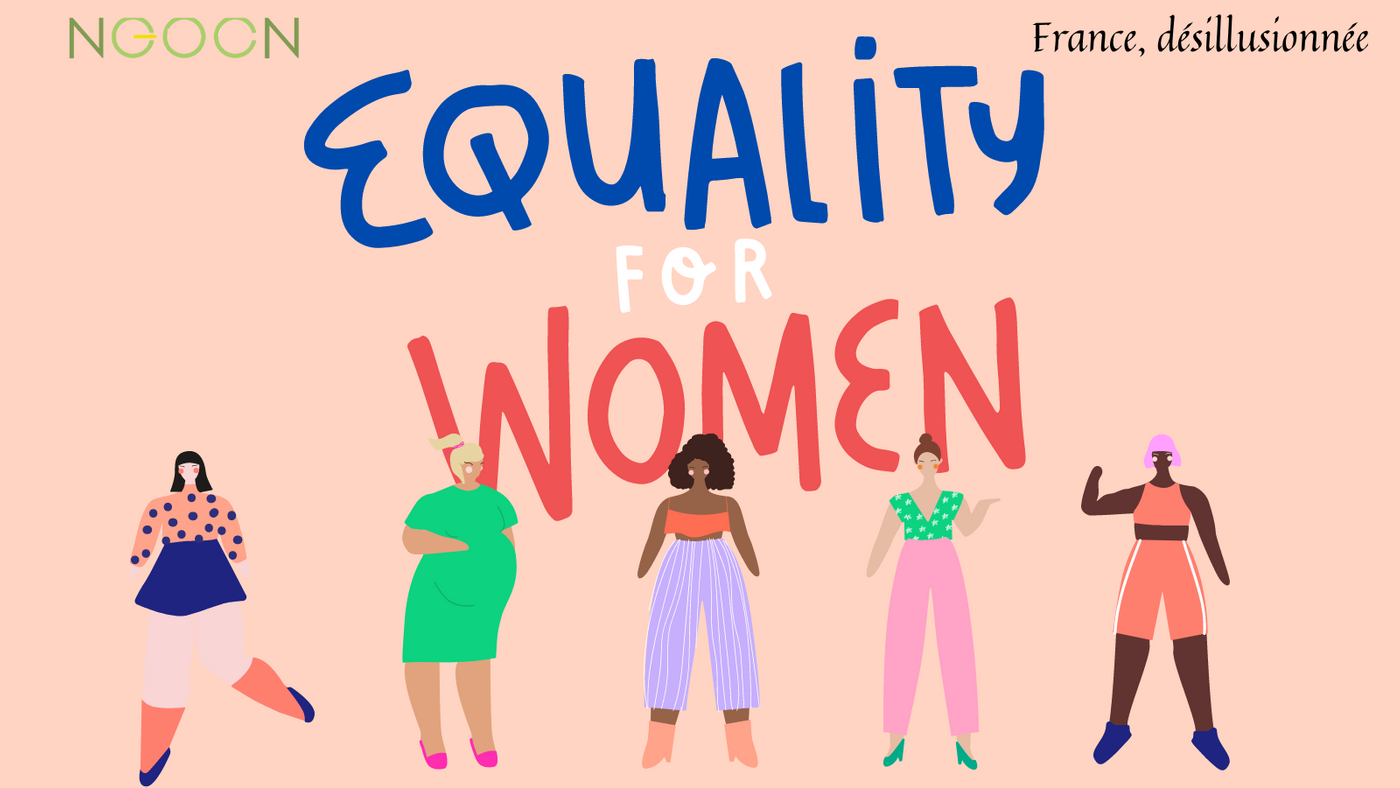
#reader letter
Author: SomeMilk
Editors: Caramel Salmon, Laitek, Xiaodong, Zhangzhang
(The full text is 10578 words in total, it may take 20-30 minutes to read)
If the #MeToo wave that spread around the world in 2017 due to the exposure of the Harvey Weinstein sexual assault scandal set off a new wave of feminist movements, this women's liberation movement in the United States may not be as many Chinese readers imagined. In all Western countries, it has received a large amount of popular support, or caused a large-scale group reflection.
In France, a country where traditional imaginations are romantic, radical, artistic, or have no taboos on sexual relations and sex itself, the #MeToo movement has exploded in different fields. Here, #MeToo has a more poignant name than the English-speaking world: #BalanceTonPorc ("Explore your smutty pig"). The first person to use the hashtag on Twitter was Sandra Muller: On October 13, 2017, as a journalist, she took to Twitter to call on women to report sexual harassment or assault at work . In an exclusive interview with Le Parisien , she said that the brighter label helped the victim distance himself from the perpetrator, and also shared with Weinstein, who was privately called "pig" at the Cannes Film Festival (the Pig) echoes.
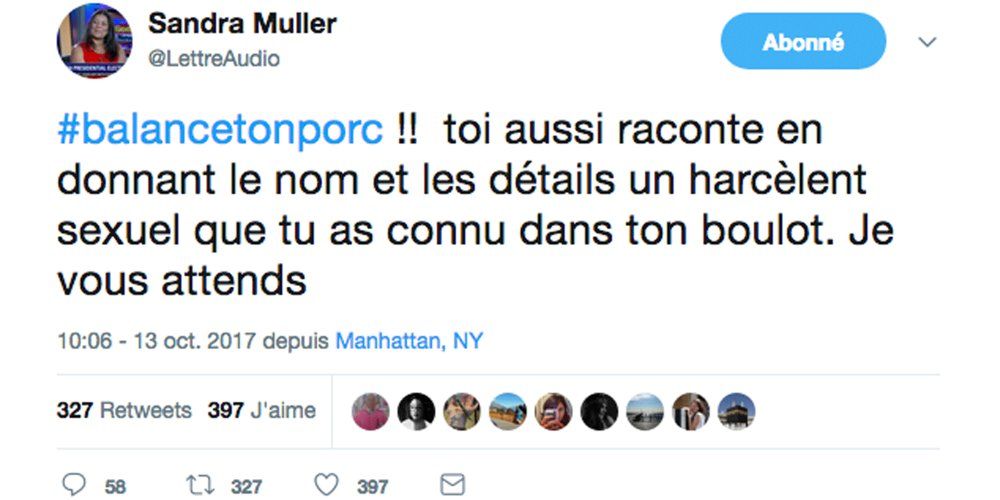
But the #MeToo movement appears to have been caught in a flurry of condemnation and stagnation in France when the wave of the English-speaking world began to encourage sexual assault victims to open up and de-stigmatize.
Art and Literature: Women's Liberation, or Witch Hunting?
On January 9, 2018, 100 women, including French actress Catherine Deneuve, published a joint commentary in Le Monde denouncing "a certain kind of feminism that advocates hatred of men" and this The "puritanism" manifested in the "denunciation movement".
"Rape is a crime, but euphemistic and inappropriate flirting is not, and courting women is not a machismo violation." The statement argued that after the Weinstein incident, the public was concerned about the phenomenon of men abusing their power and sexually assaulting women. It's a good thing to start reflecting, but this liberation of the right to speak, the "large-scale denunciation movement" that advocates the exposure of sexual assault, is a "clamping" of freedom of speech and "freedom to express affection": "We are required to Saying 'what to say' and keeping silent about their grievances, those who refuse to submit to such 'commands' are seen as traitors and accomplices." They believe that this "so-called claim to protect and liberate women in the name of the general interest" essentially binds women to the position of victims forever; men who have been publicly accused in the media and on social networks have yet to stand a chance for themselves. defending, they are treated like criminals, but they may "just touch the knee, try to steal a kiss, say something 'intimate' at a dinner party, or release a sexually explicit message to a woman they admire. signal”; this “rage of self-appointed judges and a totalitarian atmosphere” is not for women’s empowerment, but for “serving the interests of the enemies of sexual freedom, religious extremists, the worst reactionaries.” Deneuve, who was strongly criticized for the incident, apologized to victims who may have been offended in the Liberation newspaper, and later said on the TV show that he did not want to be involved in the controversy again.

In addition to this "fight for freedom", the French art and literary circles did not have a series of domino effects like the American film industry. The only voices are the nine women who accused Lu, who were announced and tracked by the independent French investigative media Mediapart in May 2018. The testimony of Besson's sexual assault, and the media investigation and court hearing have not yet ended .
Adele Enel, Roman Polanski: A turbulent 2019
In November 2019, French actress Adèle Haenel was interviewed by Mediapart for more than an hour, revealing that director Christophe Ruggia directed the film from 2001 to 2004. Adèle sexually harassed her during her screen debut, Les Diables . She was 12 at the time and the director, who was 36 at the time, sexually assaulted her (kissing her neck, smelling her hair, stroking her thighs, reaching her genitals, through a T-shirt to her chest) while inviting her to a movie at her apartment. At that time, she was unable to move due to fear, and she experienced a severe traumatic period after disconnecting from him in 2005. She quit the film circle for a time; until the age of 21, she starred in "Naissance des Blossoms" ( Naissance des Blossoms) directed by Céline Sciamma. Pieuvres ) to resume his acting career.
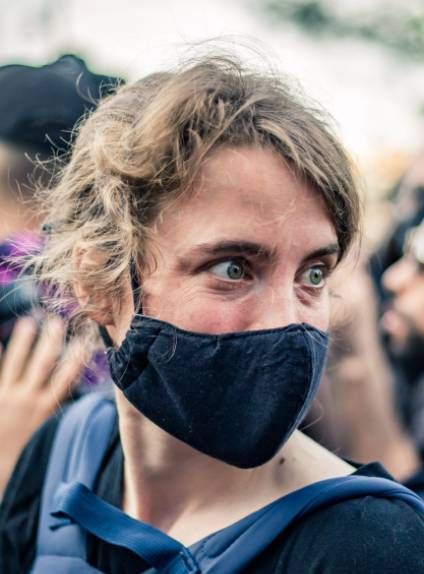
The five-page investigative report has been corroborated by multiple parties: the newspaper interviewed more than 20 people involved in the filming of the film, as well as Adèle's family and the director's ex-wife, to corroborate Adèle's testimony. But Rugia, through a lawyer, denied the allegations, saying in response to Mediapart that "if the love and hope for her has caused her pain, I hope she will forgive her."
The investigative report comes just days after Polanski's new film, J'accuse , opens in France, and cinematographer Valentine Monnier, inspired by Adèle, accuses famous director Roman Polanski of rape and assault in 1975 She, therefore, triggered a boycott of the film by a large number of feminists in France, and many premieres and promotional activities were cancelled.
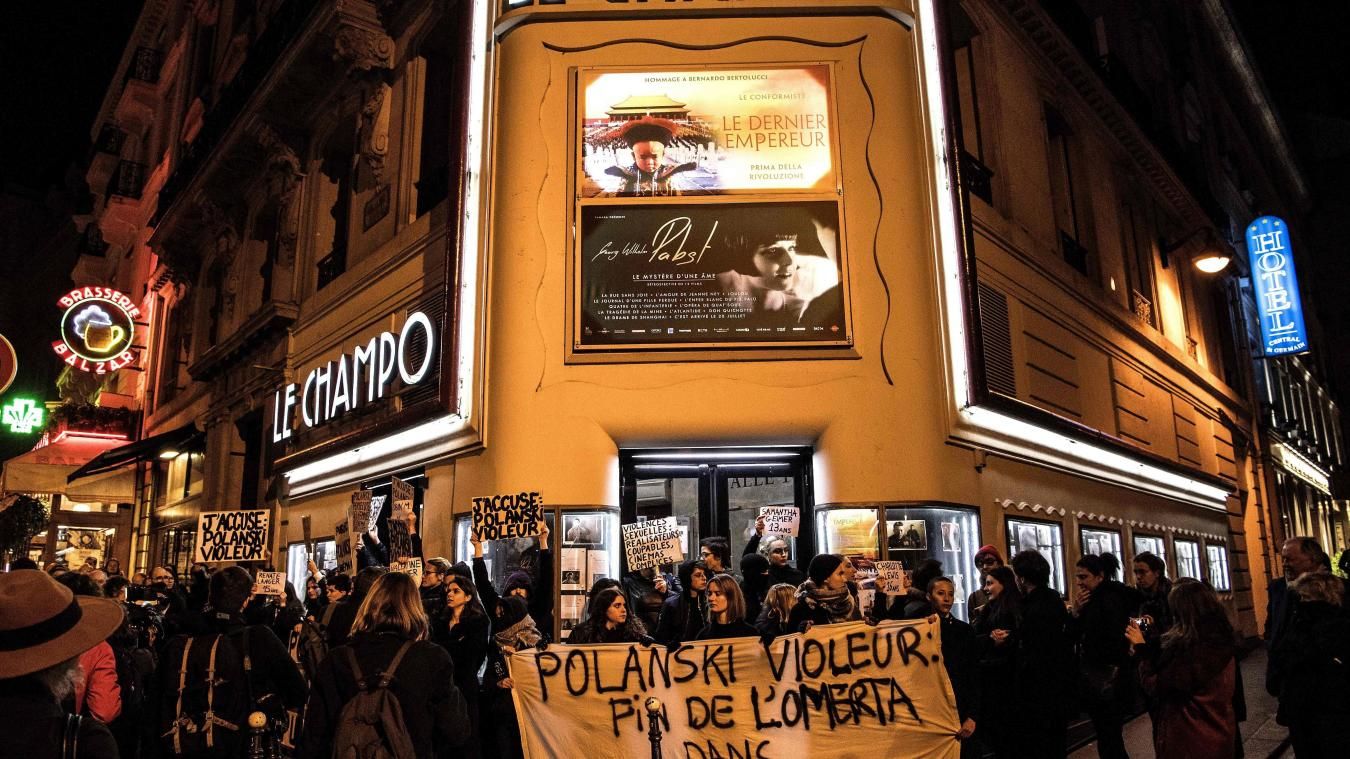
Despite the boycott caused by the rape allegation, I Accused was a box-office success in France: in its first week of release, the film topped the French box-office of the week with more than 500,000 viewers, and Polanski was also the No. One of the best openings in my career. In addition, the film received 12 nominations at the 45th Caesar Awards known as the "French Oscars", ranking first among all shortlisted films. On the night of the awards ceremony, when the guests announced that Polanski had won best director, Adèle, along with the crew of the film Portrait de la jeune fille en feu ( Portrait de la jeune fille en feu ), angrily left the venue (see video of the scene and backstage), shouting "Shameful" ( La Honte! ), "Well done pedophile!" ( Bravo la pédophilie! ), some media called this the most chaotic scene in the history of the Caesars Awards.
A similar scene reappeared this year: "Portrait of a Lady on Fire" director Céline Sciamma attended the 28th Trophées du « Film français » ( Trophées du « Film français » ). Presented to Dominique Boutonnat, president of the French National Film Center ( Centre national du cinéma et de l'image animée , hereinafter referred to as CNC), who was investigated by the police for the attempted rape of his godson, and chose to leave the venue to show his dissatisfaction. But Laurent Cotillon, executive director of the award, said the honor was not awarded to Boutonnat personally, but to the CNC, a French public institution, who had no problem accepting the award as CNC president.
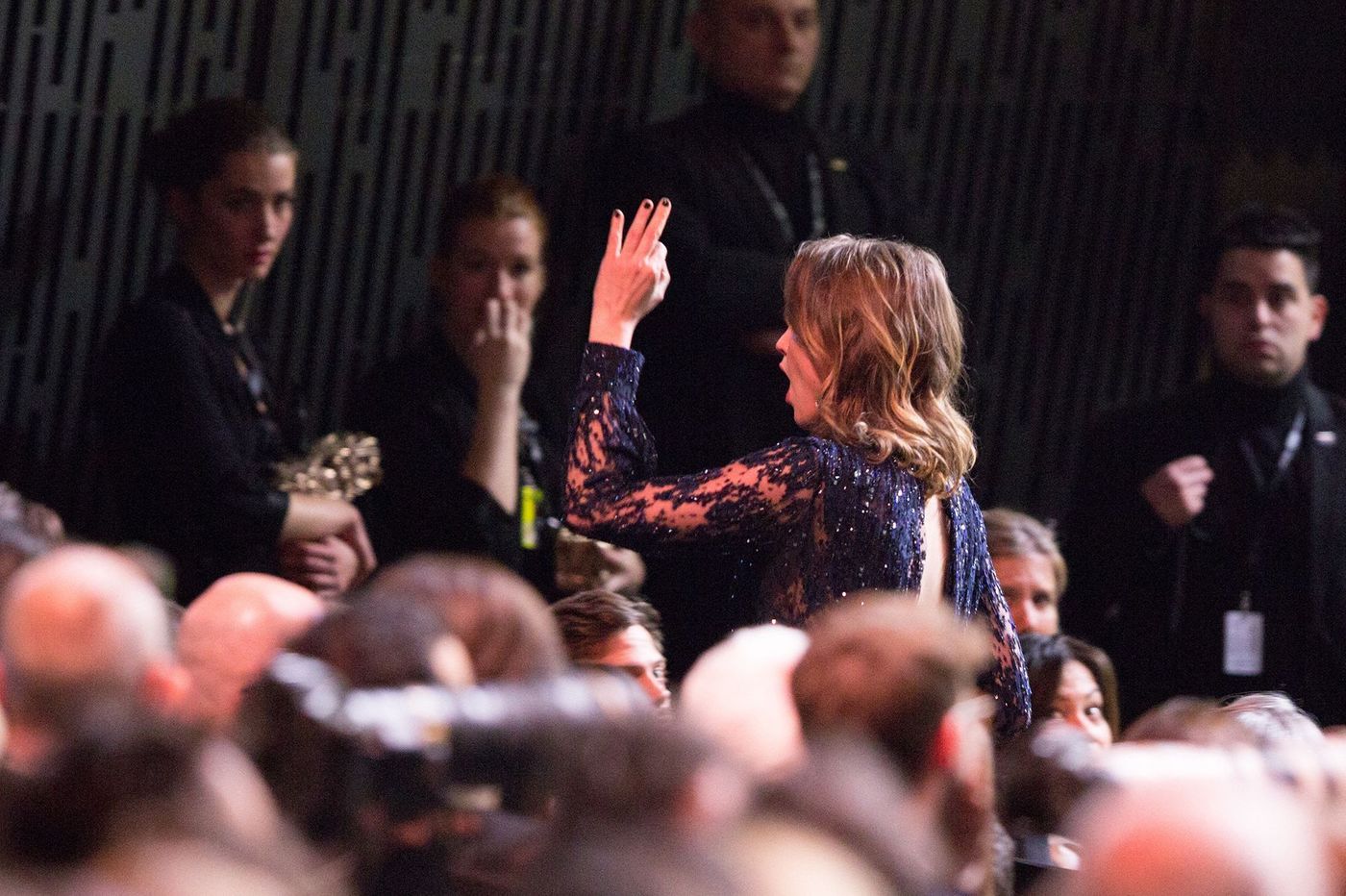
In the face of industry figures calling for the withdrawal of Dominique Boutonnat's award, French Culture Minister Roselyne Bachelot said that it should be Boutonnat herself to judge whether she can continue to perform her duties, rather than her sanctioning "people who are regarded as innocent". The Parisian newspaper quoted sources as saying that the Minister of Culture insisted on his position and gave equal respect to the testimony of victims and the principle of presumption of innocence, so the government will not consider taking back the position of CNC chairman for the time being.
The box office victory, the coronation of the art hall, and the reappearance two years later, whether in the public or in the industry, as Adèle said in an interview at the time, "spit on the faces of all victims of sexual violence."
One year after the incident, what has changed? Adèle turned down a request to invite her back to be the presenter at this year's Caesars Awards; she hasn't had any new films released during the year, and no new filming plans have been announced. There are public suspicions that she was boycotted by the industry, because after the incident, a casting manager threatened to ban her, claiming that "her career is dead". When the media followed Adèle's movements, they indicated that they were now shifting their focus to drama, and some people in the industry indicated that there were many public figures who held their own opinions on public issues.
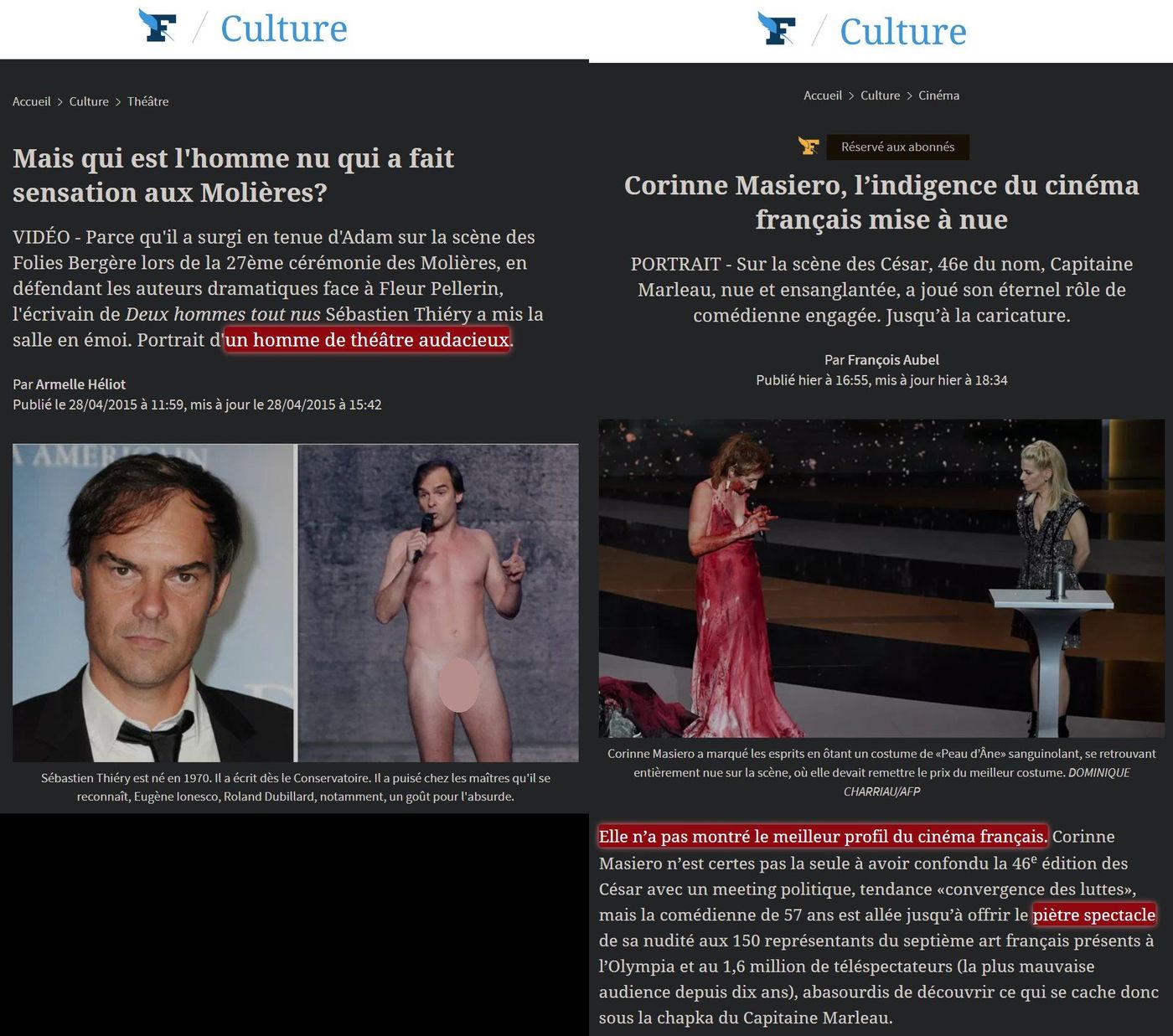
And at this year's Caesars, actress Corinne Masiero arrived on the red carpet wearing a yellow vest with the words "No Culture No Future"; and when the Best Costume Award was presented, she was Dressed in a donkey skin princess ( Peau d'Âne , French fairy tale) costume, smeared fake blood all over her body, made earrings from used tampons, and took off her costume in front of a live TV audience to protest the French government's disregard for cultural appeal. At the same Cesar Awards, actress and director Jeanne Balibar took to the stage to denounce the gender and ageism of French films: "In France, women over 40 make up 51 percent of the population. , but only 8% of screen roles; not to mention screen time, probably only around 2%.”
Social network public opinion quickly fermented, with some praising Marciero's courage, and many critics full of gender, age and class discrimination. In 2015, a similar scene was staged at the Molière Drama Awards in France: actor Sébastien Thiéry made a speech for more than four minutes in a nude on stage, calling for public attention to the drama. After the speech, the host asked everyone to applaud him again. Le Figaro, a well-known right-wing newspaper in France, reacted very differently to two things: it praised Thierry's boldness and bravery, while Marciello's behavior "disgraced" the French film industry.
Politics: Ignoring protests, scandals continue
As the French Minister of Culture responded to the CNC chairman's controversy, the French government has maintained a "neutral" and "refused to be sentenced without trial" attitude towards allegations of politician-related sexual violence, and has coldly treated or refused to accept the demands of the society for the accused politician to step down. In June 2020, Macron's government announced a cabinet reshuffle following the resignation of the previous prime minister, Edouard Phillip, after winning local elections, with Gérald Darmanin succeeding as interior minister. He was accused of sexually assaulting a woman, Sophie Patterson, in 2009, under the guise of using her power to help with her housing application, but Damanan denies the allegations, claiming that the two were in a relationship with the knowledge and consent of both parties. had sex without having sex; prosecutors terminated the investigation in 2018, citing insufficient evidence.
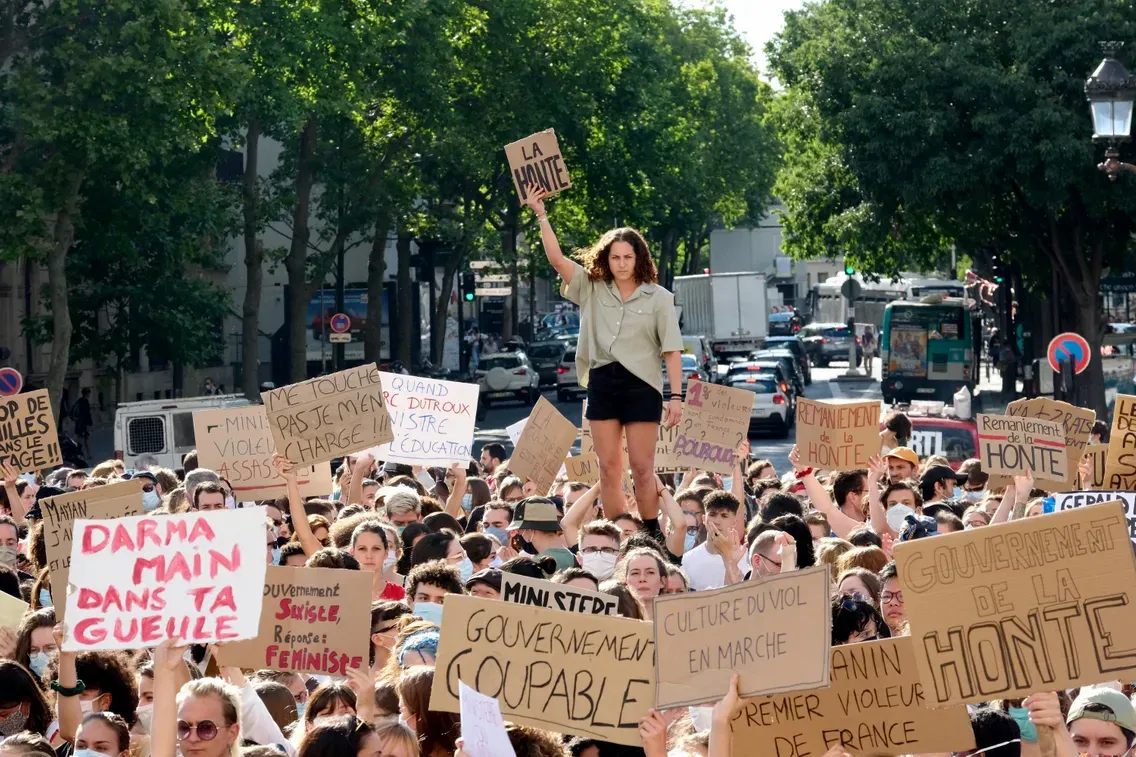
The appointment has sparked massive demonstrations across France, demanding that Macron withdraw his appointment and remove Damanin from power. On June 9, 2020, the Paris Court of Appeal finally ordered the reopening of the investigation. However, AFP quoted sources close to Macron as saying that the reopening of the investigation will not affect the appointment decision, and the French government will not comment on the case under investigation. Macron was then asked in an interview on BFMTV how to respond to the relevant controversy, saying that he supports the cause of women's rights, but if such a just cause is based on "contempt" for the basic principles of democracy, it is already "no longer." Justice again”; if the accused is sentenced without trial, they also become “victims” of social networks and street protests. He argues that "our democracy has essentially become a 'democracy of opinion'", reiterating that he cherishes the struggle for justice and gender equality, but also "a democracy that makes itself stronger and does not succumb to emotion" .
However, resorting to "rationality" and "neutrality", reducing the protests to emotional and unreasonable catharsis, and even turning stigma into an attack on democratic values and systems, is the best way to respond to public demands? It seems "fair" and "rational" to leave everything to the court, but can the existing political and legal framework protect the legitimate rights and interests of victims and promote gender equality?
Sexual assault scandals are nothing new in French politics. In addition to the DSK incident that shook the French political scene (Dominique Strauss-Kahn, a French politician accused of raping a woman in a New York hotel, was once considered a popular candidate for the French election), and in 2016, four MPs were included in the The eight women accused of sexually harassing or raping them between 1998 and 2014, including Denis Baupin, the former deputy speaker of the French National Assembly, including chest attacking and forcibly kissing Sandrine , one of the Green Party EELV spokesmen • Sandrine Rousseau, text bombing sexual harassment MP Isabelle Attard, sexual harassment Former Green Party member Annie Lahmer threatened to ruin her political future after being rejected. In 2019, the Paris Procuratorate believed that the time limit for the case had expired after filing an investigation and announced that the case would be filed.
In 2011, Georges Tron, a former MP and mayor of Delaveil, a suburb south of Paris, was murdered by two female subordinates, Virginie Ettel and Eva Lobrieu. (Eva Loubrieu) sued, alleging that between 2007 and 2010, she sexually assaulted and raped them by conducting a “foot massage course” in the office with the assistance of a deputy, on the grounds of “practising massage”. Troon maintained his "innocence" and was defended by lawyer Eric Dupond-Moretti, France's current justice minister at the time. At the court, Ettel described that she had to close her eyes out of fear, while Moretti questioned her inability to explain what really happened, and asked the prosecution to clarify events that were difficult to prove, such as asking the plaintiff to prove whether the defendant was in his underwear. ejaculate. In 2017, the court acquitted Tron because "there was insufficient evidence to show that the above-mentioned sexual relationship was against the will of both parties". Afterwards, he told the media that "defense is erection, victory is orgasm" ( « Plaider, c'est bander ; convaincre , c'est jouir » ). Prosecutors appealed the court decision in 2018, however, and a jury upheld one of the accusers, Eitel, on the rape charges against Tron, who was eventually sentenced to five years in prison.
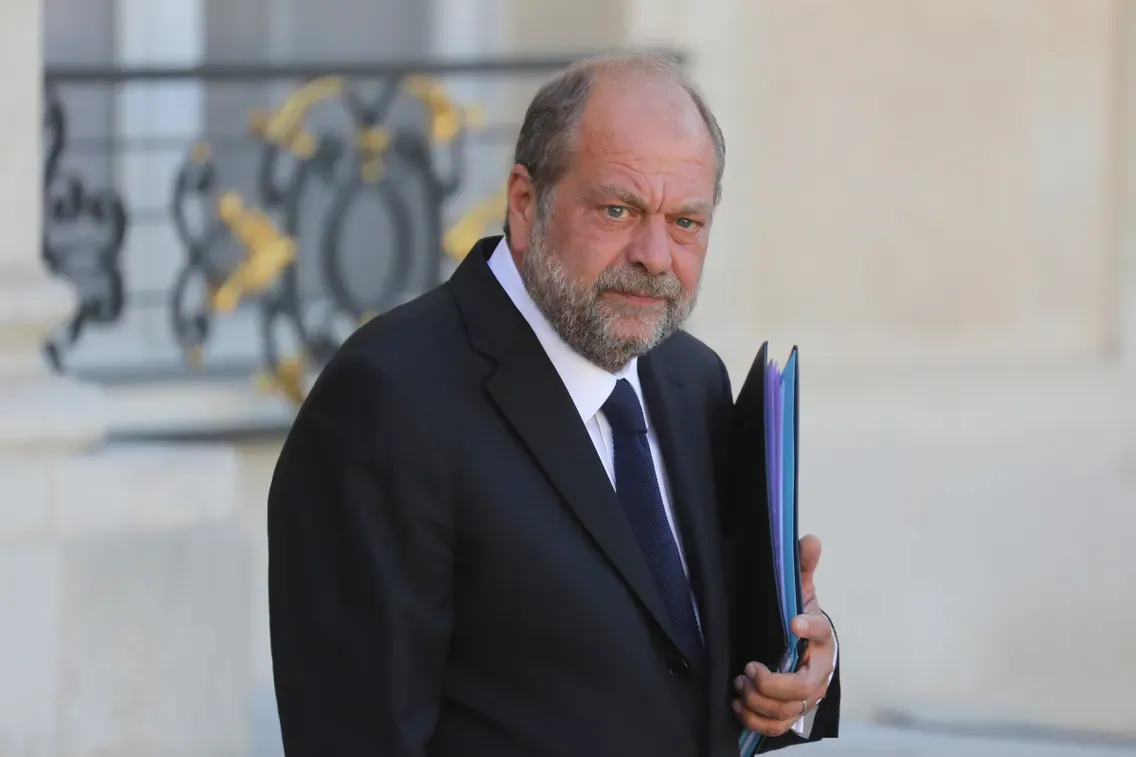
Moretti, the current justice minister who defended him that year, is also an iconic figure in the French anti-MeToo movement. When asked what he thought of the #BalanceTonPorc movement, he condemned men who abuse their power to commit sexual violence, but the problem is that social networks only undermine the principle of presumption of innocence and should not be the place where these allegations are made, adding that in reality there are still There are many women willing to trade sex for benefits; when asked about his views on the retrial of the Tron case, he accused the plaintiff, supported by far-right parties, of "squeezing" 300,000 euros from Tron, and accused the victims of "if the first If you feel raped the first time you have a relationship, you won't have the next 24."
In the wave of demonstrations triggered by Macron's announcement, Moretti and Damanan were both the object of condemnation by demonstrators, but the Macron government was indifferent in the face of large-scale protests.
Academia: Sexual Assault Culture Revealed, Gender Studies Assaulted
Leaving aside the fascination and obsession with seduction and flirtation in French culture for the time being, the sexual scandals that have been exposed year-round in the political circle, the hidden tradition of sexual violence has long existed in the political academies of various places where French political elites are trained.
On March 8 this year, on Women's Day, the front page of the famous French leftist newspaper Liberation published a "confession letter" written by a rapist to the victim, causing a public outcry.
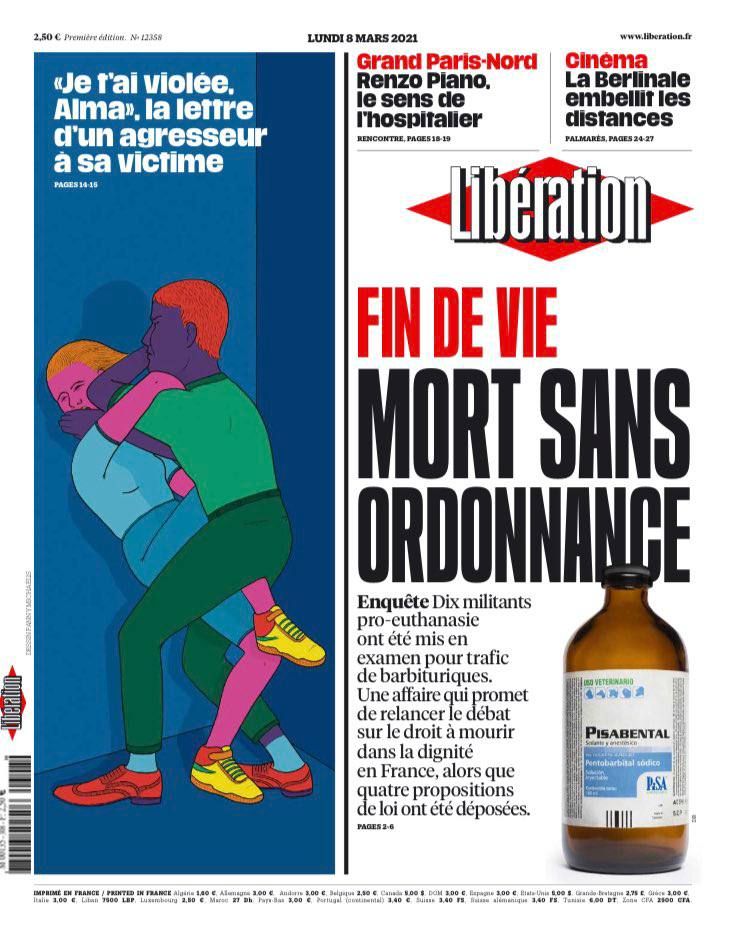
The protagonist of the article is a girl named Alma who is studying at Sciences Po Bordeaux . In April 2019, her ex-boyfriend broke up with her when she was only 18 years old after raping her; in December of the following year, she felt engulfed by grief, confusion, fear and anger, and was admitted to hospital for depression. It wasn't until January this year that she shared the source of her fear with friends for the first time. A few days later, she decided to break her silence on the student Facebook page of the Bordeaux Institute of Political Science, exposing the sexual violence against her by her ex-boyfriend. While in hospital, she received a letter from her ex-boyfriend.
In the letter, he admitted that he was swallowed by extreme and rare emotions, and looked at the victim as if he were looking at a dead thing with his primitive, animal eyes. He began to question gender, sexual orientation, masculinity, and patriarchal oppression, hoping his confessional testimony would help Alma rebuild her life. He claims to have been a victim of paedophilia as a child and also wants to see individual and collective reflection. Alma thinks it's liberating to see her offender admit his crime; she doesn't want to see him in jail, she wants him to be treated. She understands and respects that some victims choose not to listen to the abuser, but as long as the rights of the abuser and the victim are not reversed, it is a victory for the abuser to admit their atrocities.
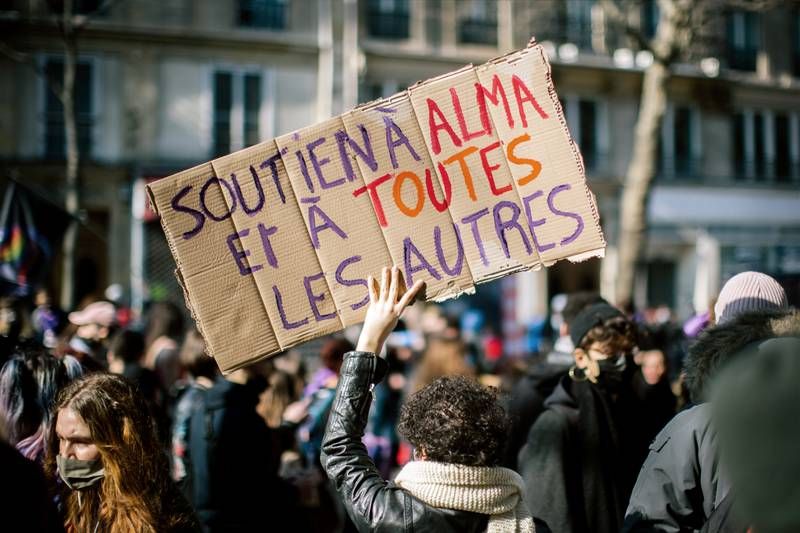
Many angry readers accused Jiefang Daily of giving the right to speak to men who sexually assaulted women in the days when they should have listened to women's voices; even though the perpetrators in the article showed their willingness to be open and take legal responsibility, the article spent a lot of pen and ink to write the perpetrators' hearts The history has evolved, and when it comes to the root of the violence, it is only hurriedly passed by the negative effects of "pedophile victims", patriarchy and masculinity; on the contrary, the victim's rhetoric and experience are placed on the fringe, and some people think that the article The choreography, wording and phrasing vaguely portray Alma's response as a tribute to the perpetrator's repentance, questioning whether the editorial choices of the newspaper are leading readers to sympathize with the perpetrator. But some people questioned, is it enough to just listen to the victim's arguments and "one-sided words"? Need to listen to what the perpetrators have to say, or create a space for dialogue between the two?
Is creating a space for dialogue in a state where the power relationship itself is already extremely unbalanced, is it a secondary injury to the victim based on an unequal relationship? In a contemporary society where "sex" and "being sexually assaulted" are still stigmatized, victims are often the target of public criticism, and perpetrators are more likely to gain sympathy, isn't this kind of dialogue-building imagination a fantasy? The search for answers to these questions may be an eternal issue, and the sexual violence experienced by Alma did not stop in Bordeaux. Under the hashtag #SciencesPorc, a spark of sexual assault began to spread in political academies across France.
#SciencesPorc: MeToo for Colleges and Universities
In February, a new wave of condemnation of sexual violence emerged on social networks, centered on the political academy known simply as "Sciences Po" in ten French cities. As a branch of the French MeToo movement #BalanceTonPorc, the initiator borrowed the image of Porc (pig) and combined it with "Sciences Po" to form a new round of the French university version of the MeToo movement.
The scandal began a few weeks ago with an incest and sexual assault scandal: at the beginning of this year , Camille Kouchner, the stepdaughter of the famous French constitutional scholar Olivier Duhamel, published a book titled "The Big Family". La Grande Familia ) memoirs, revealing that his stepfather sexually abused his underage stepson and incest. Before the incident, Duhamel had served as a professor at Sciences Po Paris and chairman of the National Foundation for French Political Science, an important funding of Sciences Po. More than a month after the incident, Frédéric Mion, the president of Sciences Po, who was accused of knowing about the incident in advance and not acting, sent a letter to all teachers and students announcing his resignation on February 9.

The #SciencesPorc condemned the perpetrators and the management of the Political Science Institute, accusing them of being silent and inaction in the face of sexual assault reports; on the other hand, the perpetrators, whether students or professors, were able to escape punishment. The movement was sparked by an open letter published on social networks by Julliette , a student of Sciences Po Toulouse , in which she accused herself of being raped by a male student, while the school's unaccompanied As condoning these sexual violence runs rampant in the Institute of Political Science. The local prosecutor's office opened an investigation after her complaint, and a total of three other cases of sexual assault within the School of Political Science are being investigated in Grenoble and Strasbourg . Since January, more than 100 testimonies condemning sexism and sexual violence have been circulated on social networks at the Bordeaux Institute of Political Science, prompting the management of the academy to set up a special working group to more effectively prevent sexual assaults. In March, the popularity of the movement continued, and a number of sexual assault allegations were successively reported at Sciences Po Aix ; the follow-up development of this series of incidents and the results of the investigation remain to be seen.
If "social networks should not be a venue for accusations of sexual offenders and a vehicle for gender equality", resorting to justice becomes a "reasonable way" for victims to seek justice. Will victims who have the courage to share their traumatic experiences be treated as fairly as possible within the existing justice system?

On March 6, the official Twitter of the French National Police released a promotional tweet about "erotic text messages": "Sending a nude photo is tantamount to accepting the risk of this image being widely circulated." The text in the picture is It said, "He received your nude photos, your friends, parents, classmates, cousins, teachers, neighbors... also received them". Immediately after the tweet was issued, the majority of netizens criticized it, accusing the judiciary of placing the responsibility for the leaked nude photos on the victims, while the perpetrators seemed to have no responsibility in this propaganda. There are also comments that it is this "victim guilt theory" that makes victims who have been blackmailed and threatened because of the leaked nude photos not dare to report to the case and seek justice, criticizing government agencies that repeatedly claim to "protect women's rights and promote gender equality" for taking the lead in smearing. Name the victim. After the controversy, the French National Police deleted the tweet, acknowledging that it was "improperly worded". But the question of whether victims were treated fairly did not disappear with the tweets.
On the legal front, a 66-year-old woman, Barbara (a pseudonym), was convicted of "misconduct" as the responsible party in the divorce lawsuit for refusing to have sex with her ex-husband. Barbara said that her ex-husband did not take responsibility for the childcare of her 4 children, and she was abusing her and her youngest daughter who was physically and mentally disabled. sexual relations. The ex-husband blamed Barbara for the faulty divorce, citing her "unfulfilled marital obligations". The Court of Appeal held that her refusal to have sex with her husband for many years violated the "duties and responsibilities of marriage" on the grounds of mental problems, and dismissed her appeal in September 2020, representing the final judgment. Barbara refused to accept the "marital responsibility" judgment and referred the case to the European Court of Human Rights.
Language, culture, and increasingly divided societies
The public's fear of breaking with tradition and conventional thinking may be an obstacle to all affirmative action movements; the French people's resistance to affirmative action movements that have emerged in recent years is also out of "protecting" their proud culture and "French values". ". This "self-protection mechanism" is most vividly reflected in language reform and in the face of "foreign cultural invasion", and it also makes this society that advocates universalism and unified national identity more divided.
Écriture inclusive: Sexism in language
Violence against women is rampant in daily life, and one of the sources of this inequality may be hidden in the languages we use every day; for a highly gendered language, French may be the hardest hit by gender inequality.
In February this year, French newspaper Le Figaro pointed out that Sciences Po requires students to use Écriture inclusive ( Écriture inclusive ) in a final exam. In the test instructions, teachers encourage the use of "writing with her". Students who do not use it will not be penalized, but students who use this writing will receive a 0.5 bonus. (Note: The French scoring system is a 20-point full-point system, and 0.5 points can be regarded as an extra point that has a certain impact on the final score)
And what is "writing with her"? First of all, we need to briefly understand a few grammar rules in French:
- All nouns in French have masculine and feminine;
- Due to the grammatical rule of "masculine precedes feminine" ( le masculin l'emporte sur le féminin , which can be interpreted as "male superiority"), if there are both masculine and feminine nouns, the pronoun will use the plural form of masculine Il ("he") Ils ("they"), where the existence of the feminine noun is erased;
- Occupational nouns such as teacher (professeur), writer (écrivain), chairman/president (président), lawyer (avocat), etc. have no feminine form because women were not entitled to many positions in the past.
In order to change this language sexism, "Writing with Her" proposes several rules:
- Use of new feminine forms of occupational nouns for women, such as profession, écrivaine, présidente, avocate
- (Note: However, this initiative is also controversial within groups advocating reform, accusing the evolution of feminine occupational terms from the masculine form as another manifestation of patriarchal oppression, and some of the pre-existing feminine forms are mostly derogatory, or refer to The wife of a male who is engaged in this profession on behalf of the male, there is a suspicion of dwarfing and objectifying women)*
- When both feminine and masculine nouns exist, use "Iels" including masculine Il/Ils and feminine Elle/Elles as pronouns, and occupational nouns also need to be changed accordingly, such as professor·e·s
- (Note: Iels is a newly created pronoun, and the resulting verb conjugation problem has not yet been standardized, and it has also become one of the attack points of many opponents)
- Do not use "man" (homme) to represent all human beings, if instead of " droits de l'homme " ("human rights" in French, but can also be interpreted as "male rights") use " droits humins " ("human rights"). s right")
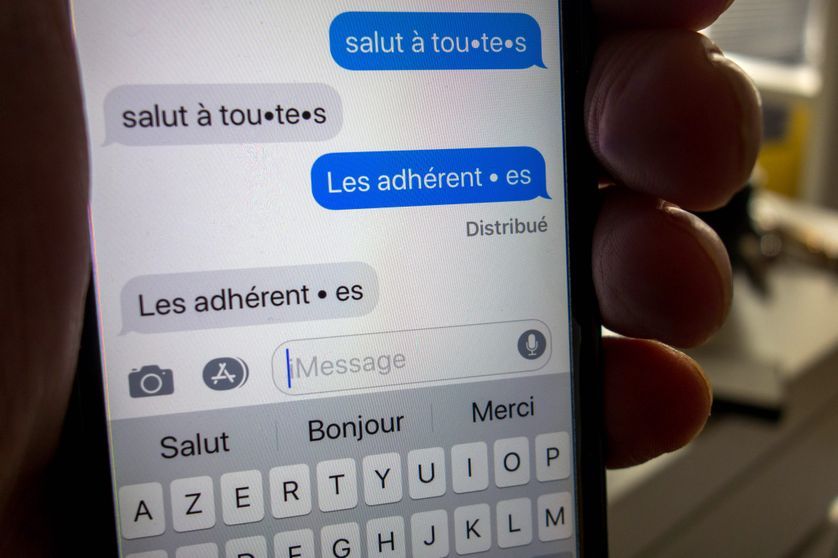
The biggest opponent of "writing with her" is the Académie française ( l'Académie française ), which is responsible for standardizing French, arguing that this "chaotic" writing system undermines the "orthodoxy" of French, leading to the division of the language, increasing the Because of the difficulty of reading and learning French, French is in "mortal danger". In February of this year, 60 members of the French Congress signed a new bill requiring the use of this writing method to be banned in administrative documents and in corporate enterprises undertaking public service assignments, arguing that it is "easy to lead to debate" and "not widely accepted by the public." Majority acceptance", "cluttering the message" and not "a vehicle for gender equality". The new bill, introduced by Congress Vice-President François Jolivet and several of Macron's close allies, is supported by most of the LREM (Republic Progress Party, France's current ruling party) ) and MPs from right-wing parties; Jolivet has also called for a ban on teaching such writing in schools.
The sudden attack on "writing with her" in French politics is not groundless: starting this year, the Macron government began to criticize the adverse effects of gender, race and postcolonial ideology rising in the English-speaking world on French universities and society. Politicians criticized and even attacked; many of the "Writing with Her", which was based on gender studies and aimed to eliminate language sexism, also became the object of criticism in this turmoil, and was accused of "overcorrecting."
Culture Wars: Gender Studies, 'Wokism', the Importance of 'Poisoning' Universities?
In February this year, French Higher Education Minister Frédérique Vidal said in an interview with conservative TV news outlet CNews that "Islamic leftism is corrupting our society and our universities", sparking huge controversy. She emphasizes that gender, race, intersectionality and postcolonial research from the United States focuses on discrimination against identity-based minorities, fueling the "radical" and "militant" of the left.
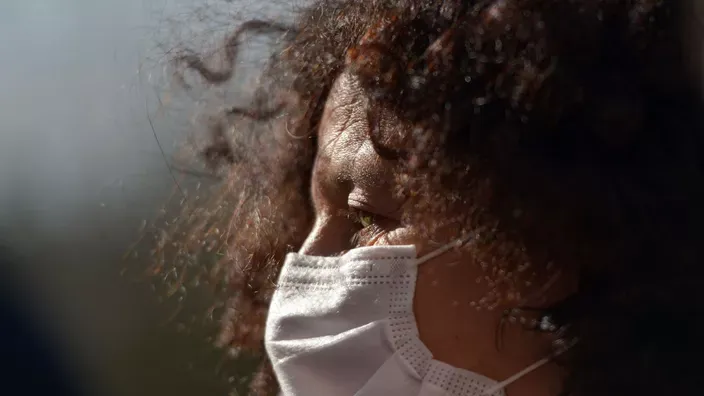
According to ifop, a well-known opinion polling agency , "white privilege", "systematic racism", "rape culture" or "toxic masculinity" The term is still little known to the general public in France, and is only popular among progressive leftist youths. But in the United States, the "woke culture" ("awakening" culture) became popular on the Internet due to the Black Lives Matter ("Black Lives Matter") movement, and has gradually been widely used in different fields. "Stay Woke" ("stay awake") refers to a state of high alertness to social problems, especially inequality of all forms. This "wokeness" ("awakening") has spread across campuses and into every corner of business and society. In French universities, however, there is growing debate around these increasingly popular concepts, particularly research related to discrimination based on skin colour, religion or gender.
Humanities and social sciences scholars who study related issues feel the increasingly tense atmosphere outside, and the contradictions within the scholar group are becoming more and more intense. Critics of gender, race, colonization and other studies see these theories and studies focused on identity as a "threat to republicanism and universalism." Academics are being asked by MPs to uphold and adhere to vaguely defined "republic values", and the minister of higher education has claimed to launch an investigation into "Islamic leftism" within the university. In January, 76 French academics founded the Observatoire du décolonialisme et des idéologies identitaires ( Observatoire du décolonialisme et des idéologies identitaires ) to resist ideologies that "reduce individuals to race and gender", which Macron also believes should be Be wary of this American ethos. The government's high-profile statements have also contributed to the social hatred of related research: In recent months, academics and university faculty members have been attacked or received death threats. These personal safety threats have been blamed by high-level government officials for their research. "Provoking social division and conflict" and even "promoting terrorism" became more serious.
In a polarized society, consensus is hard to find
Looking back at the previously mentioned MeToo movement and language reform, it is easy to spot the characteristics of groups that support change: youth, students, awareness of social injustice, recognition of equal values, etc. However, left-wing youth are not the main body of society. How do the public deal with these issues?
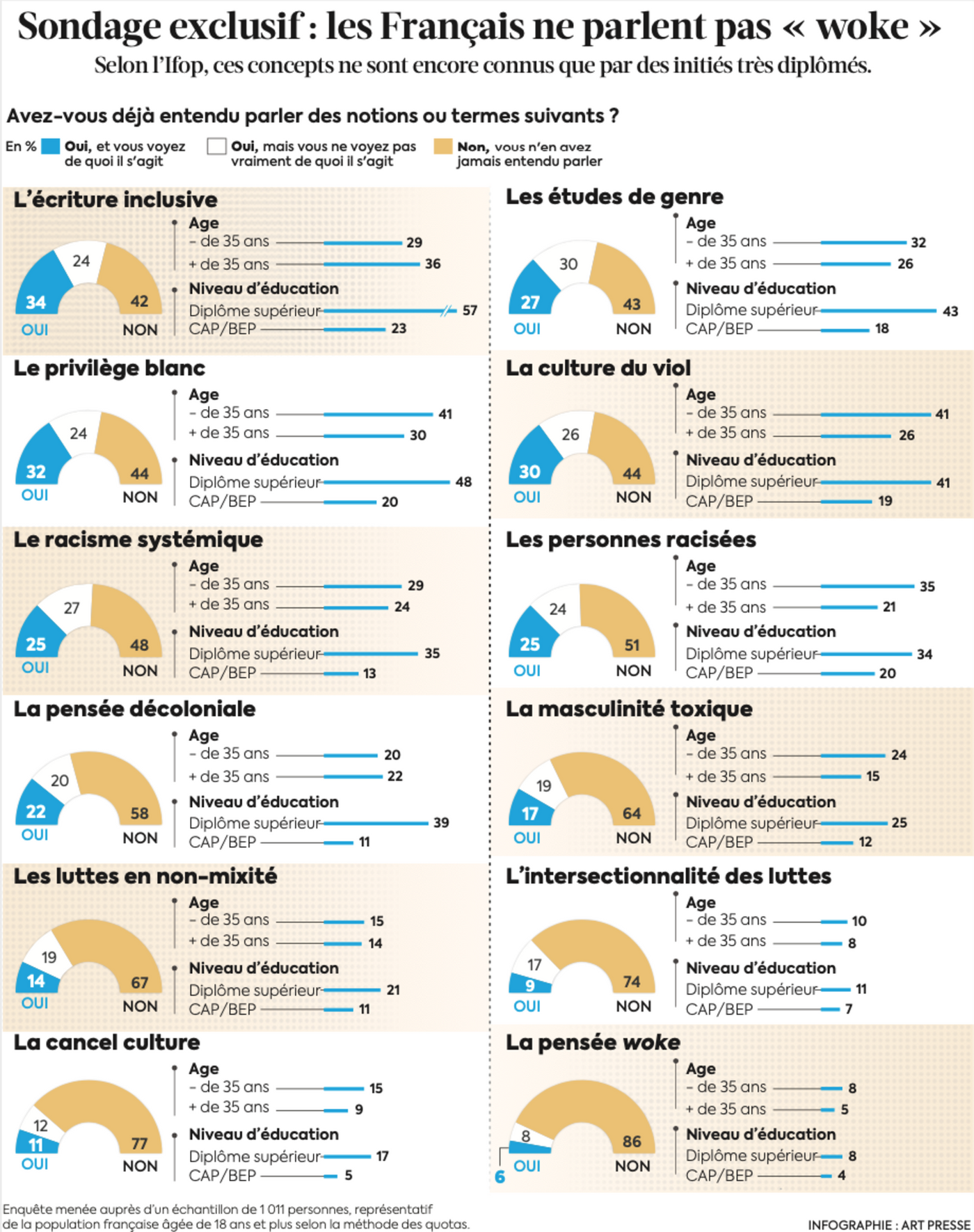
The polls mentioned earlier show that the culture of "awakening" is far from permeating French society. Some scholars have suggested that the level of understanding of these concepts is related to age and education level: they first become popular on social networks, so young people understand more; the media on these issues. In addition, the French, who have always maintained a critical attitude towards public power, showed rare support for the "Islamic leftist" remarks of the Minister of Higher Education: more than 65% of the public supported the views of the Minister of Higher Education, and this proportion was even higher among the centrist and right-wing people. Up to 80% and above.
These poll numbers may provide an angle of interpretation for Macron's stance of resolutely not withdrawing his appointment decision in the face of protests and his recent attacks on progressive ideology. A self-proclaimed centrist politician, Macron is trying to break the divide between left and right in French politics in his bid to win re-election. Shooting Snapchat, being interviewed by Brut, an online media that focuses on young people, playing Tiktok, and broadcasting live on Twitch are all propaganda strategies to create a young and friendly image to attract young people; on the other hand, he is considered to be pro-capital and pro-rich The decision of the center-right politicians on tax reform detonated the yellow vest movement that has lasted for many years. In order to win over middle voters and right-wing conservatives who support traditional values, he chose to give up the unconvincing left-wing youths and made various remarks and introduced controversial policies to "pacify" the uneasy feeling of the people who identify with their national identity that traditional values are being challenged. , which contradicts the foreign ideology that focuses on distinguishing between you and me, thereby constantly emphasizing a unified French identity ( l'identité nationale ).
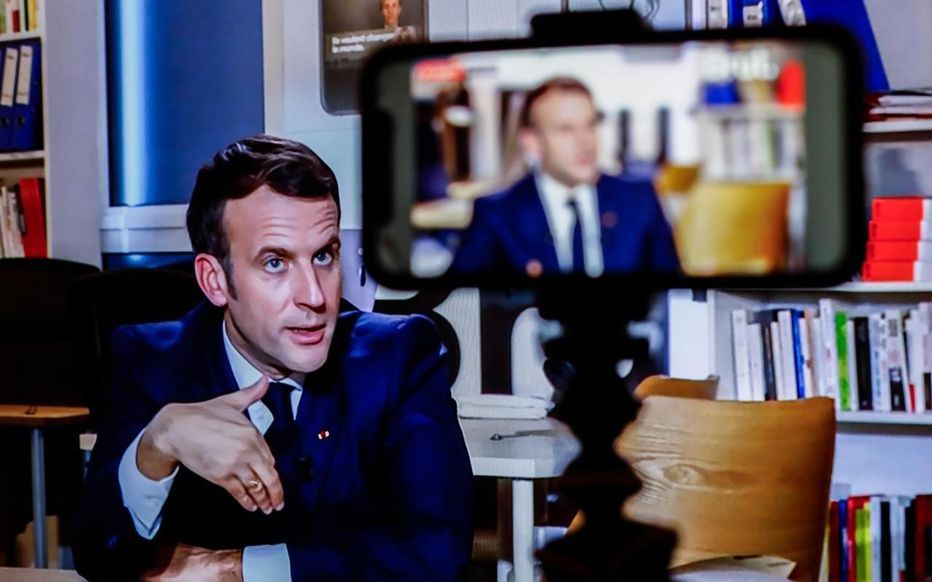
And Moretti is in line with this typical "French image" - he smokes, drinks red wine, is outspoken, has no taboos, and is dismissive of political correctness. He symbolizes the "honorable tradition" of France; as a descendant of Italian immigrants, he Working hard to become a famous lawyer is a persuasive example of immigrant integration. The reform of the "supreme" French language and the indictment of elitist politics are all shocks to the "immortal tradition." As for Polanski, it is the "reappearance of past glory" of art films under the trend of comic reform and the "invasion" of Hollywood culture. Compared with women's rights, safeguarding the "dignity" of this seventh art originated in France may be more important to the French art world.
The emergence of the Internet and the development of social networks have increased the stratospheric effect, and people are warming themselves around the fireplace under the shelter of the information cocoon, protected from the impact of opposing views. If the change of rules and order needs to be based on social consensus, in the face of this "liberal view of justice" that turns a blind eye to gender, class and racial inequalities, the progressive and conservative groups are increasingly torn apart, allowing Is there still a chance for the public to reach consensus and bring about change?
Debates over allegations of sexual assault and "freedom of flirting," presumption of innocence, and freedom of speech continue, and the requirement to treat artworks separately from people still seems to be the mainstream in the industry; the new crown cannot stop the pace of street protests by left-wing youth, but political Attacks, infighting in academia, and a polarized society make gender studies and the equality movement difficult.
In the face of the outdated culture and rigid system, the road to sexual peace in France is still long.
postscript: When sorting out and displaying events, the author once reflected on whether he was overly biased in the selection and presentation of events due to his personal attitude towards events, and portrayed a France that was "excessively extreme" on the issue of gender equality for the reader. In many of the above-mentioned events, there are still many optimistic signals - such as Adèle's brave voice and the protest leaving at the Caesar Awards, which immediately won a lot of support from the industry and the outside world; for example, there are still many people on the streets of France who promote social equality. Demonstrations, university administrators and various university associations will also launch various propaganda and set up committees to protect victims and put an end to campus sexual assault; Women, have an excellent team of female lawyers and the media to defend and speak for her... However, in the French society with a developed protest culture, dissent and demonstrations are the most common things; will it be precisely because of this mentality and status quo that "protests have become the most common daily life" that it is difficult for different voices to enter the system Internal change? Even under the blessing of artistic and literary works controlled by the elites, the outside world's imagination of France (active or passive) as "radical", "progressive" and "equal" has led those in power to immerse themselves in this illusion created for the outside world as well as for themselves. In the bubble, ignoring the injustice and resistance in the cruel reality? Under this unbalanced discourse structure, "objective narrative" and "equal description" may be another "accomplice" that strengthens inequality. So we need to spend more effort and more ink to write about injustice and face the contrast. This may be some kind of self-comforting and self-justifying thinking of the author, so the power of judgment is left to readers in the form of a postscript.
Like my work?
Don't forget to support or like, so I know you are with me..
Comment…